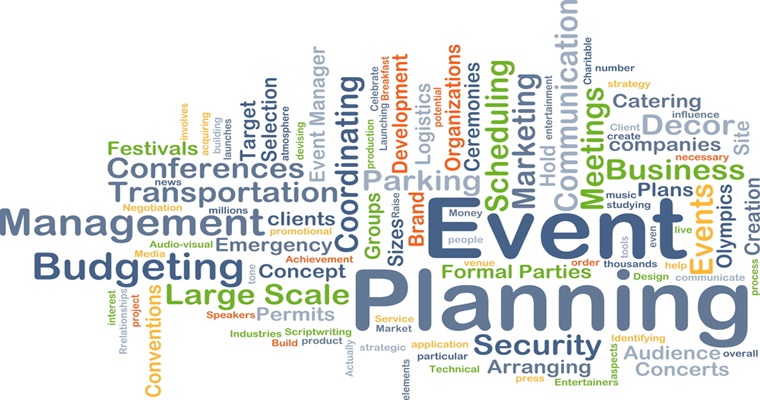4 Tips For Successful Event Marketing
Events management is an integral part of the marketing mix. If you are handling a brand, every marketing activity should be aligned with your over-all marketing strategy. It is also imperative that you know who, and where your target audience is.

Events are a good channel to strengthen your brand, but how do you know that you are doing it right? Here are four tips to successful events marketing:
Identify Your Event Goals
Since your competitors are doing it, why shouldn’t you, right? Wrong.
Know the reason why you want to hold an event in the first place. Is it tied in with your overall marketing strategy? Is your target audience in this avenue? How many would you like to reach? Will it give you a certain amount of profit? Will it strengthen your brand equity?
There are countless event goals you can target, but make sure that it’s cohesively aligned with the over-all goals you originally set for your brand.
Promote Your Event by Leveraging Your Resources
Once you have set those goals, you need to define the other variables such as the budget, date, time, and venue. You can now go on promoting your event. It may sound expensive, but it doesn’t have to be.
Since you know who your target audience is, and you should have known them for some time now. You should make use of your internal resources first. Here are a few places to get started.
Email List
Tap into your email list and send promotional newsletters to promote your event. They have signed up as one of your subscribers, it means that they are interested in you! Keep them updated with what’s new with your brand, in this instance, that is your event. Establish a close relationship with them, because they are your best assets.
Social Media
Utilize all your social media channels. Your Facebook, Twitter, LinkedIn, Pinterest followers ‘follow’ you for a reason. The good thing about these social media channels is they followed you voluntarily (just like your email list). so take advantage of that. Communicate with them, and let them know that you want them to be a part of what you are currently doing.
Get in touch With Industry Associations
Associations are an important resource because they pool people together. Like-minded people, with similar interests bond together — so take advantage of that. Send news releases to these niche associations you are a part of, ask them to post on their official social media sites, blogs, and websites. That way, you are sending out your event updates to the right audience, with limited or no cost at all!
Co-brand or Partner With Known Brands in the Industry
Be on the look out for possible event sponsors to cut costs and to widen your network reach. If a well-known, reputable brand wants to partner with you, explore that partnership because it may infuse a considerable amount of money to your budget. Also, have them promote the event to their own target audience, utilizing their own networks. That comes in with the partnership deal, so you win free event promotions as well.
Plan Well. Be Organized. Delegate Tasks.
Holding an event requires dealing with a lot of details. Any event organizer has their own checklist of some sort, so make sure that you have your own, with their corresponding deadlines, and person-in-charge of each particular task. Proper planning includes starting it way in advance. Some events require 4-5 months, some require a year of planning, others such as the Olympics takes 10 years of planning! So make sure that whatever event you are handling is planned accordingly well.
Know you can’t do everything alone. Don’t be afraid to delegate tasks, or outsource them if your organization is small. A good project manager knows how to properly delegate tasks, and follows through.
Remember Murphy’s Law, but Enjoy the Process
As the events planner, always remember the Murphy’s Law: Anything that can go wrong, will go wrong.
So be prepared. No event is perfect. There will always be issues, so allocate a buffer in your budget for last-minute issues. Think quickly, and be prepared to improvise.
While it is true that you have to be prepared, you also have to enjoy the process. It is a good, useful channel to connect and engage with your audience, so you need to make it an enjoyable experience for them, and yourself as well!
Article Written By: Meg Cabrera with Sej Staff
0

